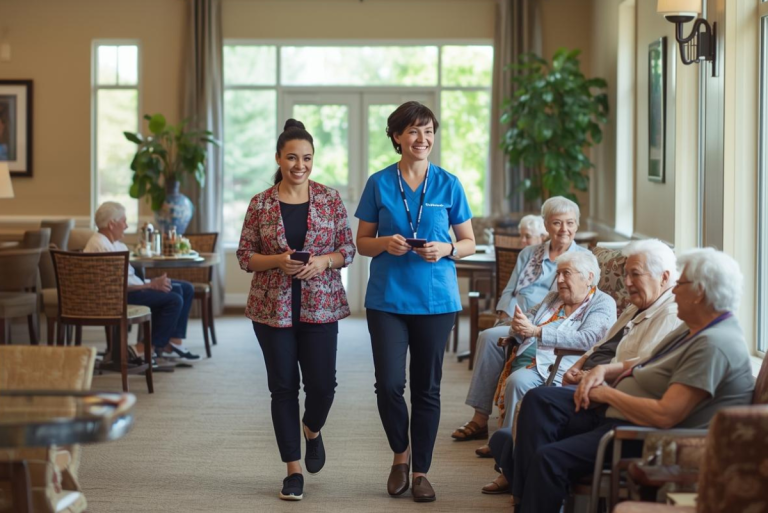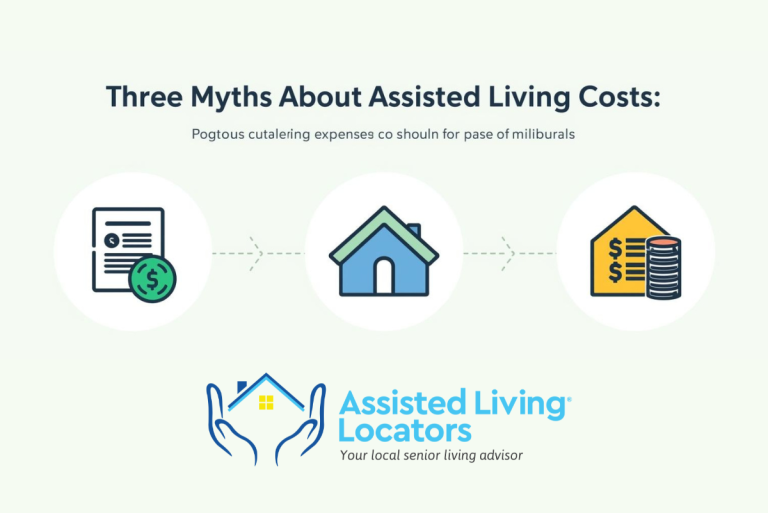Introduction
Caregivers play an essential role in the lives of seniors, offering physical, emotional, and practical support. While caregiving is often a rewarding experience, it can also be incredibly demanding and overwhelming. Many caregivers face emotional stress, physical exhaustion, and feelings of isolation. In fact, research shows that caregivers are at an increased risk of mental health challenges such as depression and anxiety. According to the National Alliance for Caregiving, around 40-70% of family caregivers experience symptoms of depression
One way caregivers can manage these challenges is by joining support groups for caregivers. These groups provide caregivers with a space to connect, share experiences, and receive emotional and practical support. Support groups offer a safe environment to discuss feelings, ask questions, and gain insight from others in similar situations. In this blog, we’ll explore the emotional, social, and practical benefits of caregiver support groups and offer guidance on how to find and join them.
I. The Emotional Toll of Caregiving
Being a caregiver can take an emotional toll, and caregivers often experience stress, anxiety, and depression due to the demands of caregiving. Juggling caregiving responsibilities with other daily tasks, such as work and family obligations, can lead to burnout. Studies show that caregivers of seniors with chronic illnesses are particularly vulnerable to emotional distress. According to a report by the AARP, caregivers often experience high levels of stress and emotional strain, leading to physical health issues such as high blood pressure, fatigue, and sleep disturbances.
Moreover, caregivers are often isolated, spending much of their time caring for their loved one rather than socializing or pursuing personal interests. This isolation can contribute to feelings of loneliness and depression. In fact, the CDC highlights that social isolation is a significant risk factor for mental health problems in caregivers.
Support groups for caregivers are a helpful tool in managing these emotional challenges. By connecting with others who understand their situation, caregivers can alleviate feelings of loneliness and find emotional support from peers who can empathize with their experiences.
II. Social Benefits of Support Groups for Caregivers
Joining a caregiver support group offers significant social benefits that can improve emotional well-being and help reduce isolation. Caregivers often feel as though they are on an island, dealing with responsibilities that others may not fully understand. Support groups provide a community of people who share similar experiences, offering both social and emotional support.
According to the American Psychological Association, social support is crucial in reducing stress and maintaining mental health. Research shows that social interaction can lower the effects of stress by boosting mood and providing caregivers with the opportunity to express themselves openly. Being part of a group where others understand the challenges of caregiving can make a huge difference in a caregiver's life, helping to combat loneliness and depression.
Support groups also foster a sense of community. Caregivers can meet others in similar situations, make new friends, and form lasting connections. These social interactions provide much-needed relief from the isolation many caregivers face. In fact, studies show that caregivers who have strong social support networks report lower levels of stress and a higher quality of life.
By joining support groups for caregivers, caregivers gain a sense of belonging and understanding, which helps them feel less alone in their journey.
III. Practical Benefits of Support Groups for Caregivers
In addition to offering emotional and social support, support groups for caregivers also provide practical benefits that can make caregiving more manageable. In these groups, caregivers can share advice, tips, and strategies for managing daily caregiving tasks. Whether it’s finding ways to handle difficult behavior, coordinating medical care, or managing time more effectively, support groups can be a valuable resource for practical solutions.
According to the Family Caregiver Alliance, caregivers who engage in support groups report better management of caregiving responsibilities and a decreased risk of burnout. Support group members can exchange helpful tools, such as calendars for tracking medication, information on local senior services, and tips on managing care schedules.
Moreover, support groups can provide caregivers with strategies to prioritize self-care, which is crucial in avoiding burnout. Caregivers often neglect their own health and well-being while focusing on their loved one’s needs. Support groups encourage caregivers to take time for themselves, recharge, and seek help when needed. This, in turn, helps caregivers maintain their own health and perform better in their caregiving roles.
IV. How to Find and Join Support Groups for Caregivers
Finding the right support groups for caregivers can be a life-changing decision. There are several ways to find local and online support groups, depending on the caregiver’s preferences and location.
- Online Resources: Websites such as Caregiver Action Network and Family Caregiver Alliance provide a wealth of resources and lists of local and online caregiver support groups. Many of these groups offer virtual meetings, allowing caregivers to connect from the comfort of their own homes.
- Local Senior Centers: Many senior centers offer support groups for caregivers, providing a local space for caregivers to meet in person. These groups can be especially beneficial for caregivers who prefer face-to-face interaction.
- Healthcare Providers: Caregivers can ask their loved one’s doctor, nurse, or social worker for recommendations. Healthcare providers often know about local support groups and can refer caregivers to them.
- Community and Religious Organizations: Local community centers or places of worship often host support groups for caregivers. These groups may be more specialized, such as those focused on specific diseases or conditions.
- Social Media and Online Forums: Virtual communities, such as those on Facebook or Reddit, also offer opportunities to connect with other caregivers. Online forums allow caregivers to ask questions, share experiences, and receive support from people worldwide.
V. Overcoming Barriers to Joining Support Groups for Caregivers
While the benefits of joining a caregiver support group are clear, many caregivers face barriers that prevent them from getting involved. One common challenge is time constraints. Caregivers are often overwhelmed by their duties and may feel they don’t have time to attend a support group. However, many online groups offer flexible meeting times, allowing caregivers to participate without leaving home.
Another barrier is the feeling that their situation is unique or that no one will understand their struggles. However, support groups are designed to be inclusive and welcoming. It’s important for caregivers to remember that everyone’s experience is valuable, and support groups are meant to foster a sense of shared understanding.
Additionally, some caregivers may feel uncomfortable asking for help or may worry about stigma. Support groups, however, are safe, non-judgmental spaces where caregivers can express their emotions and seek support without fear.
Conclusion
Caregiving is a rewarding but often challenging role that can take a significant emotional and physical toll on individuals. Support groups for caregivers provide a valuable resource to help manage stress, reduce isolation, and prevent burnout. These groups offer a community of peers who understand the struggles of caregiving, providing both emotional support and practical advice. By finding the right group, caregivers can improve their well-being, gain new insights into caregiving, and connect with others who share their experiences. Whether in-person or online, joining a support group can make all the difference in a caregiver’s ability to thrive in their role. Caregivers should take the first step in reaching out and connecting with others who can offer support, understanding, and encouragement.





